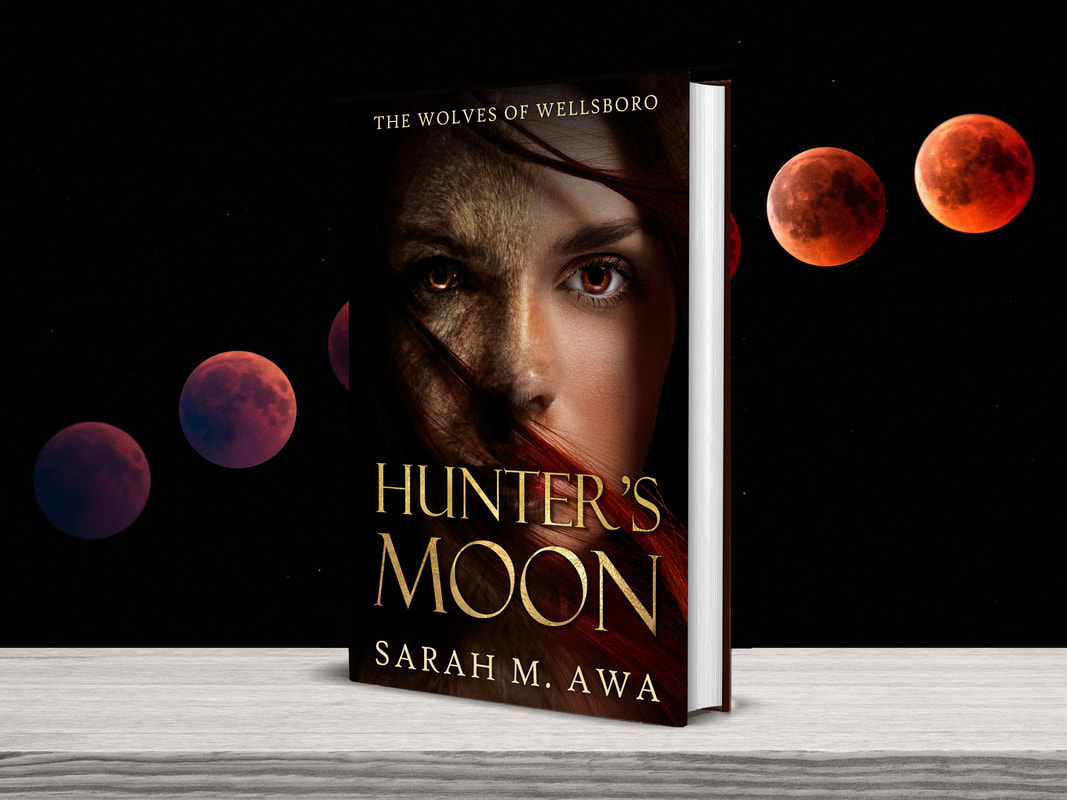|
Today, as I do on occasion, I looked to the calendar for writing inspiration. I don’t know whether a lot of other writers do that or not, but it has helped me many times. Today it was simply for a Facebook post—and the calendar reminded me that one of my characters has her birthday around now. But while I was writing Hunter’s Moon, I found myself checking the calendar frequently, for plot reasons. You see, my book involves werewolves, and their changing at the full moon means they have to be very time-conscious. They have to be aware (hehe, a “were”!) of what moon phase it is, what time the moon rises, what day/time they should leave for their hideout, and what days they need to take precautions against humans discovering their identity—like wearing dark contacts a few days before and after the full moon, lest their eyes glow yellow.
Each chapter is labeled with the date(s) and moon phase(s), and sometimes individual scenes have the date, phase, or time of day marked. The day of the week is also important, since my main character, Mel, is a student with an academic schedule to work around. Keeping such careful track of time may seem mundane and tedious (at least when your life/career/etc. doesn’t depend on it), and maybe such super-specifics aren’t your thing. Growing up, I was never one for journaling daily or following any kind of regular schedule; I didn’t have strict parents forcing me into a routine—outside school, of course. However, as an adult, I’ve been forced to develop a pretty structured work schedule (we’re talking at-home, self-employed), especially since founding Thinklings Books with Jeannie and Deborah. It’s good for me, but it has been somewhat hard adjusting. (Better late than never, though!) The funny thing is: the more meticulously (i.e., normally . . . or “boringly”!) I have structured my life, the more extraordinary my life has become! Giving details on that would be another full blog post, so I’ll just say: The structural aspect of both my life and my book shows how the mundane and the tedious serve to highlight the extraordinary, the odd, and the fantastical. . . . After all, I consider my job as COO for a revolutionary publishing company to be pretty fantastic! We in the writing community call this contrast a foil. “Foiling” is a literary device in which one person, place, or thing in a book sets off another person, place, or thing because of the pair’s complete—or very strong—differences from each other. School, routine—regular things you don’t think about too much—contrast with how “the moon waits for no wolf” . . . a phrase I just made up. The moon, like honey badger, don’t care that it’s finals week. It’s either reschedule your exams or miss them and (probably) fail. A “ticking clock” also serves to up the tension in your book, but that’s a topic for a different post. Actually, the post I linked to is perfect and doesn’t need me to add to it. ;) Another foil in Hunter’s Moon is a character-based one: Pam and Jocelyn. Both friends worry about Mel and are trying to figure out what’s going on with her. But whereas Pam is very emotional and prone to panic, Jocelyn is calm and rational and calculating. Classic Myers-Briggs high F versus high T. Thinking of MBTI (which I love, if you couldn’t tell), I would peg Pam as probably ESFJ and Jocelyn as INTP. True opposites. Well, that’s all I’ve got right now on contrasts and foils. Back to work!! Tick-tock . . .
1 Comment
|
AuthorSarah Awa lives in Ohio with two hairy guys and writes books about werewolves. Archives
February 2024
Categories
All
|



 RSS Feed
RSS Feed
